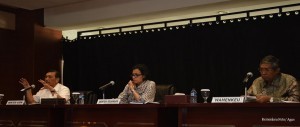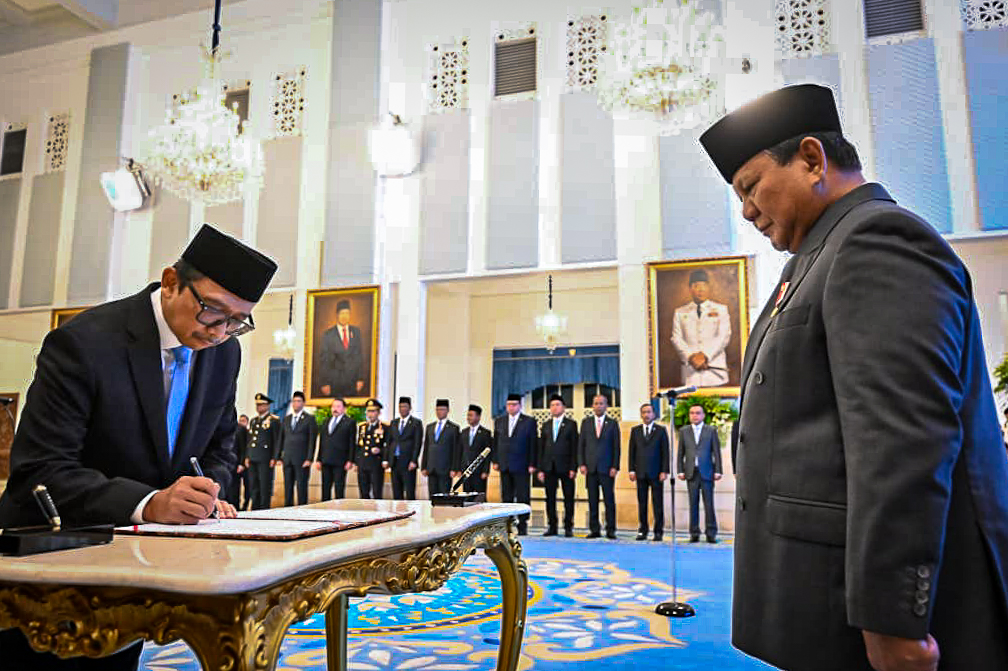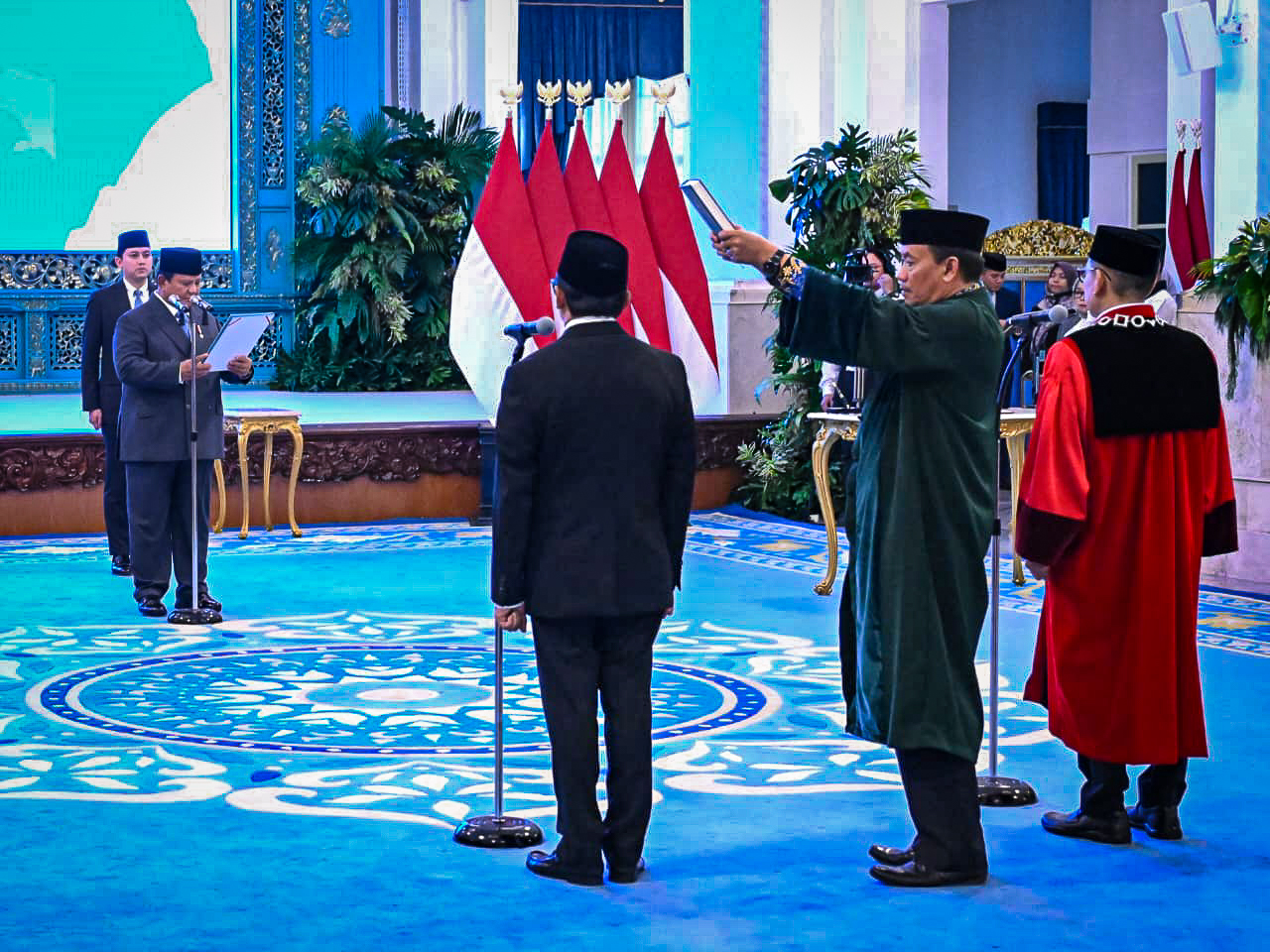Government to Revise Government Regulation Number 79 of 2010

Minister of Finance Sri Mulyani Indrawati accompanied by Acting Minister of Energy and Mineral Resources Luhut B. Pandjaitan and Deputy Minister of Finance Mardiasmo, delivered a press statement on the revision of Government Regulation Number 79/2010, at the Ministry of Finance, Jakarta, on Friday (23/9).
To anticipate oil and gas exploration and exploitation activities slowing down, the Government finds it necessary to revise Government Regulation Number 79 of 2010 on Refundable Operating Costs and Income Tax Treatment of Upstream Oil and Natural Gas.
Minister of Finance Sri Mulyani Indrawati said that at the moment, exploration activities in Indonesia, from the aspects of the amount of oil wells and cost, are less competitive. Even, when the oil price is relatively high, oil production in Indonesia does not increase.
Thus, there is a question on the policy, particularly on incentives aspect and on how the Government treats exploration activities in oil and gas upstream industry, Sri Mulyani said in a joint press conference with the Acting Minister of Energy and Mineral Resources Luhut B. Pandjaitan, at the Ministry of Finance, Jakarta, last Friday (23/9).
The Government, Sri Mulyani added, has carried out a number of assessments on Government Regulation Number 79 of 2010. These assessments aim to create a competitive environment, particularly in oil and gas exploration and exploitation activities.
Revision of the Government Regulation aims to increase oil and gas investment which can use a resource well, efficiently, and fairly. These must be formulated in the revision of Government Regulation Number 79 of 2010, Sri Mulyani explained.
The Minister explained that since 2007, the production of Indonesias crude oil continues to decline. Even, the production in 2020, which in 2016 is 800,000 barrels per day, is predicted to decline to 480,000 barrels per day.
The Minister explained in details a number of aspects that show why the Government Regulation needs to be revised so that the investment climate is more competitive for investors. They aspects are:
- Contractors are comparing with Assume and Discharge;
- Prior to the enactment of Law Number 22 of 2001 on Oil and Gas, to increase the economics of oil and gas projects, the Government gave incentives assume and discharge, which means the Government will reimburse the indirect taxes (Value Added Tax, Land and Building Tax, Import Duty, Regional Tax, and Regional Retribution) that are paid by the Contractors through reimbursement mechanism;
- After Law on Oil and Gas as well as Government Regulation Number 79 of 2010 took into effect, assume and discharge incentives was changed into cost recovery mechanism, which means the indirect taxes that have been paid by the Contractors are considered as cost recoverable. This regulation is less attractive to investors;
- Tax burden during the period of exploration acitivities;
- With the enactment of Government Regulation Number 79 of 2010, where there is no more assume and discharge incentives, the Contractor should pay the taxes to carry out exploration activities, for example Value Added Tax and Land and Building Tax.
- With low success rate of oil and gas finding (<40%), it would be a burdonsome for Contractors that should bear the expenses of tax during the exploration stage if they fail to find oil and gas that have economics value;
- The economics of the project keeps declining because it is difficult to carry out oil and gas development project;
- At the moment, challenges of exploration activities and oil and gas development are so much harder since it mostly uses deep water technology to find oil and gas which means it needs sophisticated technology. In the meantime, the oil wells that are not economically attractive must be developed (marginal field).
The Government expects the revision of the Government Regulation would be able to increase investment in upstream oil and gas. (Humas Kementerian ESDM/ES) (MMB/YM/Naster)








